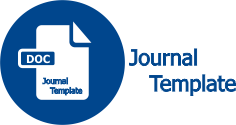PENGEMBANGAN PERANGKAT PEMBELAJARAN KOOPERATIF TIPE NHT BERBASIS LINGKUNGAN PADA MATERI POKOK SISTEM KOLOID
(1) Universitas Negeri Makassar
(*) Corresponding Author
DOI: https://doi.org/10.26858/cer.v0i0.3880
Abstract
Keywords
Full Text:
PDFReferences
Arends, Richard.2001. Learning to Teach. McGraw-Hill Companies, Inc.New York.
Firman, H, L. 1997. Kimia 1. Jakarta: Departemen Pendidikan dan Kebudayaan Balai Pustaka.
Hobri. 2009. Metodologi Penelitian Pengembangan (Developmental Research) Aplikasi Pada Penelitian Pendidikan Matematika. Jember : Universitas Jember.
Ibrahim, Muslimin. dkk. 2000. Pembelajaran Kooperatif .University Press. Universitas Negeri Surabaya.
Kauchak, P., dan Eeggen, D. 1993. Strategies for Teachers, Teaching Content and Thinking Skills. Allyn and Bacon Publisher. Boston.
Lago, R. G. M. 2007. Influence of Cooperative Learning on Chemistry Students Achievement, Self-Eficacy and Antitude. Liceo Journal of Higher Education Research, 5(1).
Lie, Anita. 2002. Cooperative Learning. Jakarta : PT. Gramedia Widiasarana Indonesia.
Multyaningsih, E. 2012. Metode Penelitian Terapan Bidang Pendidikan. Bandung: CV Alfabeta.
Patmawati. 2007. Peningkatan Hasil Belajar Matematika Melalui Model Pembelajaran Kooperatif Tipe Numbered Head Together Pada Siswa Kelas VII A SMP Negeri 33 Makassar. Skripsi FMIPA Universitas Negeri Makassar. Makassar.
Rahmawati, D., dkk. 2014. Penerapan Model Pembelajaran Kooperatif tipe Number Head Together Berbasis Eksperimen untuk Meningkatkan Keterampilan Proses Sains Siswa SMP. Unnes Physic Education Journal, 3(1), 40-45.
Sabara, E. 2011. Pengembangan Penuntun Praktikum Kimia Berorientasi Life Skills Siswa Kelas XI IPA Di SMA Negeri 1 Binamu Kabupaten Jeneponto. Tesis tidak diterbitkan. Makassar: UNM.
Sa’ud, S.U & Makmun, S.A. 2005. Perencanaan Pendidikan Suatu Pendekatan yang Komrehensif. Bandung: Remaja Rosdakarya.
Slavin, Robert E. 1995. Cooperative Learning: Theory, Research and Practice.Second Edition. Allyn and Bacon Publisher. Boston.
Suherman, Erman. Dkk. 2001. Strategi Pembelajaran Matematika Komtemporer. JICA Univeritas Pendidikan Indonesia. Bandung.
Thiagarajan, S., dkk. 1974. Instructional Development for Training Teachers of Expectional Children. Minneapolis, Minnesota: Leadership Training Institute/Special Education, University of Minnesota.
Trianto.2007. Model-model Pembelajaran Inovatif Berorientasi Konstruktivistik. Jakarta:Prestasi Pustaka.
Article Metrics
Abstract view : 436 times | PDF view : 173 timesRefbacks
- There are currently no refbacks.
Jurnal dipublikasikan oleh: Program Studi Pendidikan Kimia
Program Pascasarjana Universitas Negeri Makassar
Alamat JL. Bonto Langkasa Gunung Sari Makassar, 90222
Kampus PPs UNM Makassar Gedung AD ruang 406 Lt 4, Indonesia.Phone 082393643737/085145825311/085242228678
CER UNM Indexed by:

Chemistry Education Review (CER) is licensed under a Creative Commons Attribution-NonCommercial 4.0 International License.










